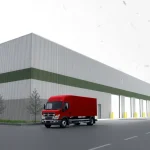Border backups persist amid CBSA systems outage CTA

The recent technological failures at the Canada Border Services Agency (CBSA) have left many in the trucking industry frustrated and concerned. The implications of these outages extend beyond mere logistics; they affect the economy, international trade, and the livelihoods of countless drivers. Understanding the depth of this issue is crucial for grasping its impact on the broader economic landscape.
Ongoing border issues due to CBSA system failures
The Canadian Trucking Alliance (CTA) has expressed strong dissatisfaction with the CBSA's handling of a recent systems outage, which the agency had initially claimed had been resolved. However, reports indicate that issues persist, severely hindering the movement of goods across the Canadian border and leaving many truck drivers stranded for extended periods.
According to CTA, the situation is critical, with ongoing delays at various border crossings. Recent experiences have shown drivers facing wait times of four to five hours at key entry points, including Emerson in Manitoba and Pacific Highway in British Columbia. Other locations, such as Queenston-Lewiston and Peace Bridge crossings in Ontario, have also reported significant delays.
Impact on the trucking industry
The consequences of these delays are far-reaching. The CTA has highlighted several key challenges that the industry is currently facing due to the system outages:
- Stranded Drivers: Many drivers are facing extended periods of inactivity while waiting to cross the border, leading to frustration and financial strain.
- Economic Consequences: The delays hinder the overall flow of international commerce, which is critical for maintaining supply chains and economic stability.
- Customer Dissatisfaction: Clients relying on timely deliveries are increasingly unhappy, which could result in a loss of business for trucking companies.
- Industry Exodus: Some drivers are reportedly considering leaving the industry altogether due to the ongoing frustrations.
Statements from industry leaders
Stephen Laskowski, the president and CEO of the CTA, has been vocal about the need for the government to address these ongoing issues. He stated, “This is an ongoing crisis of investment neglect of our IT trade infrastructure.” His remarks highlight a deeper concern regarding the lack of investment in critical systems that support international trade.
Laskowski further emphasized that Canada currently lags behind other G7 nations in economic growth, attributing part of this stagnation to infrastructure inadequacies. The CTA is calling for immediate action from the Canadian government to resolve these systemic issues and prevent future occurrences.
Specific border crossings affected
While the issues at the CBSA are widespread, certain border crossings have been particularly affected:
- Emerson, Manitoba: Reported delays of up to five hours, causing significant bottlenecks.
- Pacific Highway, British Columbia: Similar delays reported, impacting trade routes significantly.
- Queenston-Lewiston, Ontario: An advisory was issued urging all Canada-bound commercial carriers to avoid this crossing due to ongoing processing delays.
- Peace Bridge, Ontario: Also experiencing substantial delays, affecting overall traffic flow.
In a statement from the Niagara Falls Bridge Commission (NFBC), they advised commercial carriers to stay clear of the Lewiston-Queenston International Bridge crossing until further notice, underscoring the seriousness of the situation.
Government response and future actions
The CTA is urging the Government of Canada to make a firm commitment to resolve the ongoing issues. Lak Shoan, CTA’s director of policy and industry awareness programs, stated that it is essential for the CBSA to ensure that the complications experienced this week do not recur in the future. He emphasized the need for a robust plan that addresses the underlying technology failures affecting border processing.
Conclusion
The recent outages at the CBSA not only impact the trucking sector but also have broader implications for the Canadian economy and trade relations. As drivers continue to face long wait times and logistical challenges, the call for immediate government intervention grows louder. Enhancing the infrastructure and technology that supports border processing is crucial to maintaining Canada's position in the global market.
For further insights into the challenges facing the trucking industry, you can view this informative video:
As the situation unfolds, stakeholders in the industry will continue to monitor developments closely, advocating for solutions that ensure smoother operations at the border moving forward.




Leave a Reply